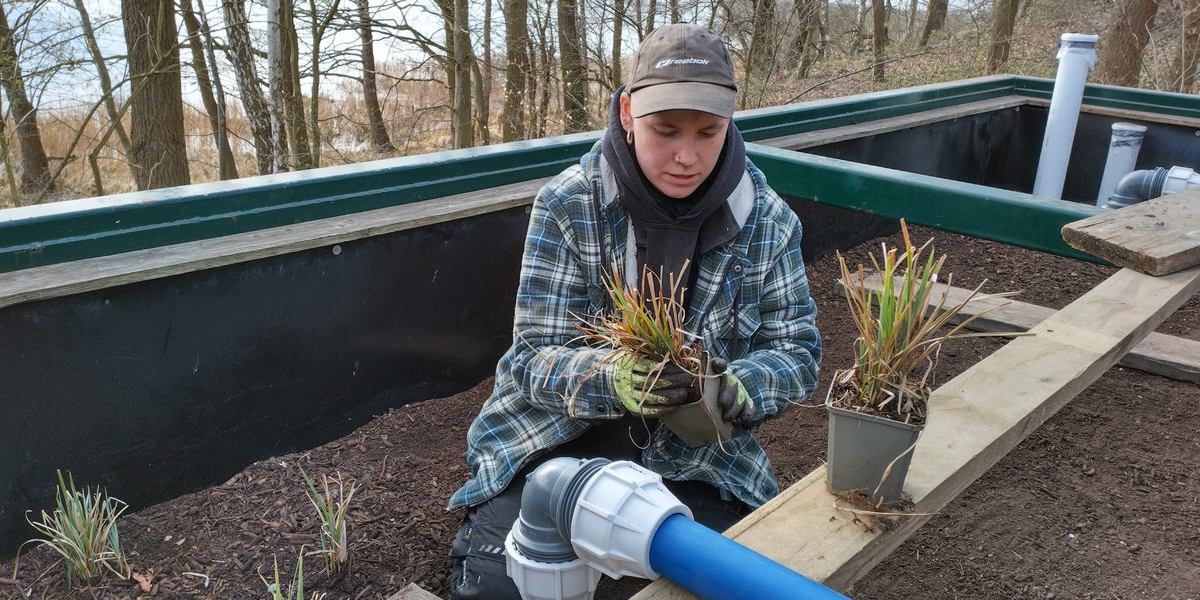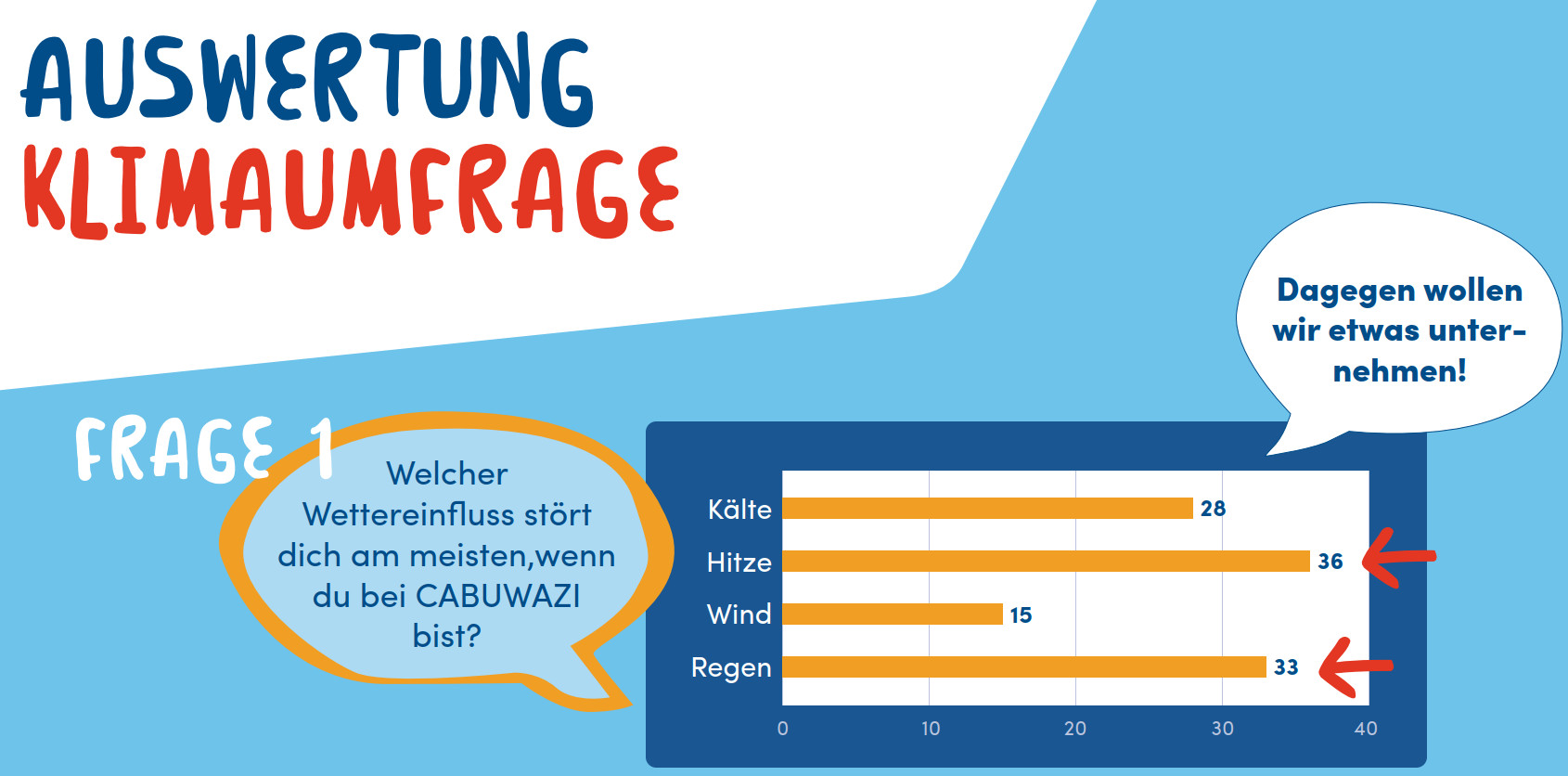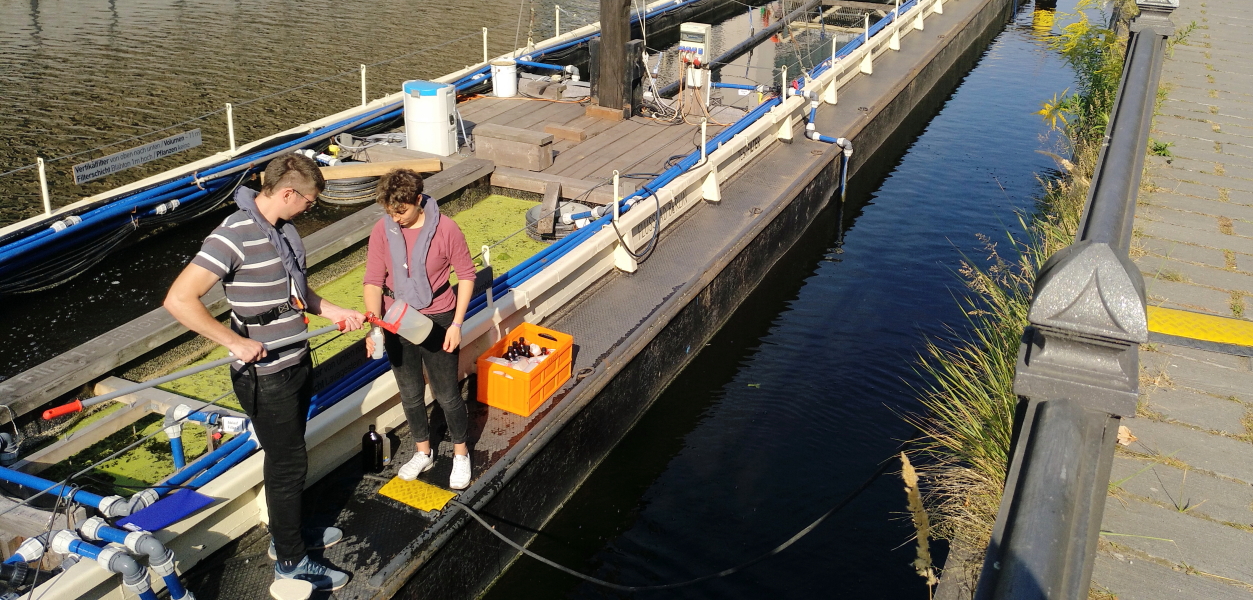

Kampala - Water Resources Management Programme
CABUWAZI climate exhibition
Research for decentralised water reuse
In our latest research project, DeWaResT [1], we are focusing entirely on Nature Based Solutions (NBS) to make used water from households reusable. It has long been a nuisance that high-quality drinking water is first used for flushing toilets and then has to be pumped to the sewage treatment plant, sometimes via long pipes. Afterwards, it is no longer available to the local water balance and leads, more or less well purified, to an unavoidable and, with decreasing runoff, increasing chemical pollution of the water bodies. It is already clear that rising temperatures are causing a sharp increase in water consumption in the landscape. At the same time, there is less precipitation in some regions of Brandenburg. As a result, groundwater levels are sinking and lakes and watercourses are drying out.
According to the European Directive 91/271/EEC and the Brandenburg Municipal Wastewater Ordinance (§7 BbgKAbwV), water abstraction from natural sources should therefore be reduced and treated wastewater reused wherever possible. However, high demands are placed on the reuse of treated wastewater in agriculture to protect the environment and products. It is estimated that the wastewater collected in decentralised collection pits in Brandenburg could cover up to 20% of the irrigation needs in agriculture if it were appropriately treated in a decentralised manner. In the future, the European Water Reuse Regulation (EU-WVVO) will regulate the requirements for purification and monitoring.
The contribution of our research project is to enable such decentralised water cycles. For this purpose, constructed wetlands are optimised in terms of process technology and combined with further purification stages as required. Such vegetated soil filters are particularly suitable for decentralised application due to their simple and robust operation. Integrated stages are designed to further remove germs and trace substances.
The innovative soil filter is compact and requires a very small surface area. Two pilot plants in Brandenburg are used for optimisation and further development. The Pehlitzwerder plant serves to prove its applicability at a remote natural camping site with very high nature conservation requirements in the middle of the Schorfheide-Chorin biosphere reserve. The second plant treats regular household wastewater. After completion of the investigations in 2023 and evaluation of the results, this new type of constructed wetland should be available for future decentralised applications. This is intended to close the gap in agricultural (economic) water reuse. This research is funded by the Federal Ministry of Education and Research (BMBF) in the funding measure “KMU-innovativ”, technology field “Resource Efficiency and Climate Protection”, application area “Sustainable Water Management”. The project partner is KWB Kompetenzzentrum Wasser gGmbH, Berlin.
Further information: Heribert Rustige
[1] Decentralised wastewater treatment and water reuse for regions with seasonal drought stress

